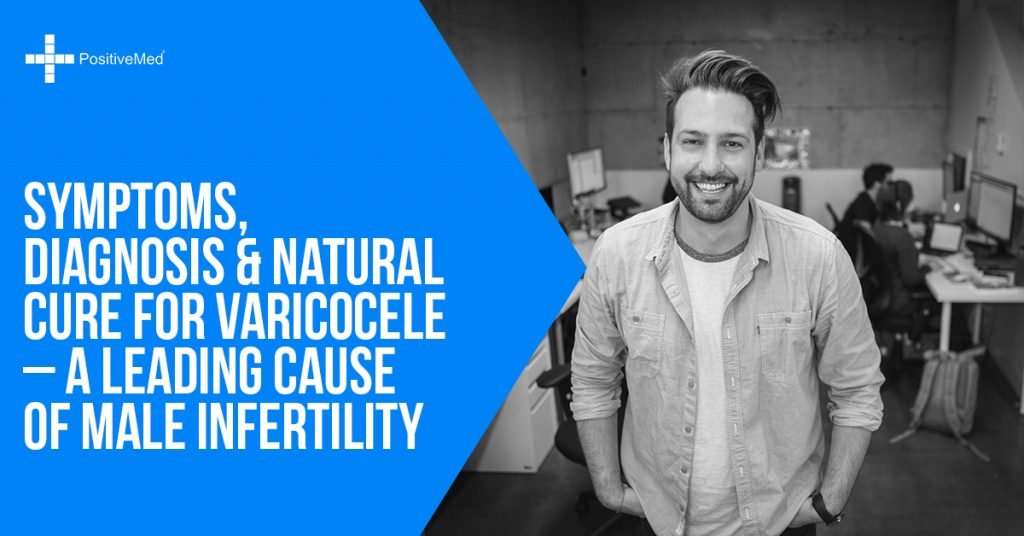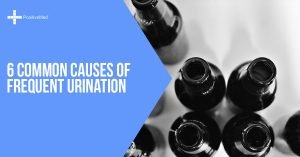Fertility-related issues are very common nowadays, all over the world. There are numerous reasons behind this issue, and varicocele is one of that, which predominantly affects the fertility in men. And there isn’t any necessity for expensive surgery to get over varicocele; you can get rid of this by various natural alternatives (risk and cost-free). Thus, here we are going to discuss the various varicocele symptoms, diagnosis and also varicocele treatment without surgery.

Varicocele & Infertility
Often, people affected by varicocele would have a swollen scrotum, as the vein within their scrotum are enlarged and those veins are known as the pampiniform plexus. This condition affects the blood flow to the sperm through the scrotum by increasing the testicular temperature. Subsequently, it affects the reproductive glands, due to the interference in the flow of blood to the scrotum.
Thus varicocele is a condition, where there is a collection of enlarged varicose veins in the scrotum and it is one of the most prominent issue, seen in male infertility. It is widely prevalent, affecting approximately around 45 out of 100 men with known infertility. Generally, it is most likely to occur in the left testicle area, as the blood flow on that side of the scrotum is usually greater. Sometimes, the varicocele can also develop on both the sides, however it’s less common.
How Varicocele Develops?
Due to various spoilt lifestyle habits such as, lack of physical exercises, junk diet, environmental stressors, etc. the toxicity level in the body gets high. This would result in altered pH levels in blood, ultimately paving way to the formation of free radicals in the blood. At this state, the blood wouldn’t be able to flow smoothly, which leads to its accumulation in the veins. Thus, this causes the veins get enlarged and consequents in varicocele.
Varicocele usually develops at the age of 15 to 25 years (mostly during puberty) in men. During puberty, the testicles develops at fast rates and eventually attracts more blood to be delivered to it. Thus, there are higher chances for anyone to develop varicocele at this stage. Apart from the conditions mentioned above, hormonal imbalance, low oxygen in blood, etc. also give-in to the formation of varicocele.
Signs, Symptoms and Diagnosis of Varicocele
Varicocele is very subtle that in most cases, there aren’t any clear symptoms. But a few signs include, dull ache in the testicles, discomfort in the testicles and a feeling of heaviness or dragging in the scrotum. It can be detected through a Testicular Ultrasound; it is a diagnostic test that obtains images of the testicles and tissues surrounding it. An ultrasound scanning is a safe and painless procedure; this produces high frequency sound waves to get a pictorial representation of organs in the body.
Along with the ultrasound scanning, a sperm count analysis is also recommended to evaluate the density, shape and mobility competence of the sperm. These are the two methods to detect varicocele.
Surgical Solutions for Varicocele
Varicoceles are generally harmless, but if there is any pain or swelling, it is usually treated with a surgery called ‘varicocelectomy’, which is quite an expensive one. Thus, once a varicocele is diagnosed, doctors normally recommend to go for the surgery.
Howsoever, the surgery couldn’t be considered as an everlasting cure, there are chances for the varicocele to recur. This is because, the surgery only helps you to get rid of the varicose veins but leaves the original root cause unaddressed. Therefore anyone is prone to the risk, of re-developing the varicocele, and getting the vas deference (the sperm release pathway) damaged, which causes a permanent reduction in the sperm production. Thus, even the doctors wouldn’t assure that the surgery in 100% effective.
Non-Surgical Treatments for Varicocele: Safe and Effective
Apart from a surgery there are natural/simple ways to get rid of this issue. The ultimate goals of this kind of varicocele treatment is to drastically reduce the toxicity levels in the body and to revive the pH levels in the blood. There are two different ways in which one could do this.
1. Resurrect the lifestyle, and
2. Reduce free radicals.
Lifestyle:
The lifestyle changes that you need to make are, Eat clean, Stay away from processed foods and Make sure you get plenty of physical exercises. To satisfy the taste buds, we tend to jazz up the flavor of foods, using salt, sugar, and fats which contains free radicals. Even this damages our cells and makes our blood unhealthy. Consuming more fresh fruits, vegetables, seeds, legumes, and whole grains greatly helps to reduce the toxins in the blood.
Reducing free radicals: Free radical obstructs the functioning of valves in the spectrum. There are three medicines which can prevent this issue.
Acidim – It delicates the pH levels around the valves in scrotum and alkalinity of various body organs.
Nervica – It is used in all conditions of the nerve signals, vein flow, blockages in the nerves, etc. also in an inflammatory condition inside the body.
Activiz – Synchronises the internal system and helps to get rid of toxins.
Once it’s cured, you can stop taking these medicines. There aren’t any side effects in these medicines and they prove to be effective. However these medicines, only prevents the development of varicocele temporarily, hence only a healthy lifestyle would help us to maintain it throughout our life.
Disclosure Policy:
This blog is a collaborative blog written by a group of individuals. This blog accepts forms of cash advertising, sponsorship, paid insertions or other forms of compensation. The compensation received may influence the advertising content, topics or posts made in this blog. That content, advertising space or post may not always be identified as paid or sponsored content. The owner(s) of this blog is compensated to provide opinion on products, services, websites and various other topics. Even though the owner(s) of this blog receives compensation for our posts or advertisements, we always give our honest opinions, findings, beliefs, or experiences on those topics or products. The views and opinions expressed on this blog are purely the bloggers’ own. Any product claim, statistic, quote or other representation about a product or service should be verified with the manufacturer, provider or party in question. This blog does contain content which might present a conflict of interest. This content will always be identified.






